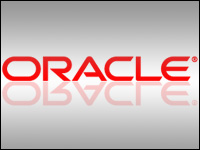
I have written often about the connection between CRM and economics, almost as if one explains the other. While I still believe it in part, my thinking has evolved and become more nuanced over the last 15 years to the point that today I want to discuss my evolution.
Social science is for me the obvious metaphor for CRM, but which social science? For starters, we could choose from economics, psychology or sociology and rule out things like history, law, geography and linguistics except as supporting tools. Political science? Please. Anthropology is on the fence, but I’m going to toss it out for reasons that might become clear below.
Bubbling Over
The first era of CRM can rightly be explained by economics. The market was new, and there was a stampede to get CRM because it was needed to administer all of the new business generated by the IT revolution. New markets and new categories were forming left and right.
In a way, CRM became both a child of those times and an enabler. The dominant metaphor of those early markets was the hockey stick — exponential growth, Say’s law, and economics ran the show.
However, that was a bubble — or actually, a series of bubbles. We serially went from automating one business function to another until the whole shebang was undergirded by silicon and software.
Phase two, or the second era of CRM, was psychological. We used CRM to track what people did and attempted to predict what they’d do next based on their past behavior. I thought it was creepy. The phrase, “People do logical things for emotional reasons,” neatly encapsulates this time. It was the time of the early and late majority adopters taking on the technology revolution’s cornucopia.
Independent Action
The third era, which we now are living through, might be considered the social era, but that has more to do with sociology than with the dominant technology of the day. I don’t think you can explain today with either economics or psychology alone. Unlike economics, the markets are not moving based on the actions of rational individuals, at least not exclusively. Neither are they moving based on psychology — though many are the analysts who see an individual hand in the form of worry in many market trends.
One of the primary questions of sociology is how people are motivated. Are their actions determined by and within the social structures they inhabit (social class, religion, gender, ethnicity, political and economic persuasion, user groups, etc.) or are they determined by agency, the ability to act on one’s free will? It’s a trick question because there’s an element of each.
Before the Internet, I would have said structure dominates, but more than 20 years later it is clear that the Web enabled many of us to exercise agency by breaking free of dependencies on vendors and substituting our own information-gathering and the counsel of others.
There’s a long history of independent action’s eruptions throughout western civilization since the Industrial Revolution, and you can look it up. However, my point is that agency reached business only about 20 years ago, and it has been causing disruptions ever since.
Social media, at its best, has merely accelerated this independence — but it also has provided a kind of false structure to vendors that think they can leverage it simply as a better, faster, cheaper approach to broadcast communications.
The Pendulum Swing
The ancient Greek philosopher Protagoras once said, “Man is the measure of all things.” By that he meant that there are no objective or absolute standards that exist external to us, but all things by which we are measured must come from within us.
The phrase was revived during the Renaissance and applies to the sociology of business today — and to my contention that sociology is CRM’s motive force. The social revolution is its own renaissance, and like the original, it puts the human — the customer — at the center of everything.
Social media is also creating its own structure in the form of communities, though, and in this we can see a pendulum swinging back from agency as the determinant of action in society.
The end of Net neutrality may be an early warning sign of agency’s relative demise and structure’s re-ascent. Structure might provide greater stability, but that can lead to a boring consistency and higher prices as our groups exert their own gravitational pull back to the safe, unexamined center.
Curiously, I think we’re at a crossroads. We don’t yet know whether structure or agency will win, and the outcome will be determined by whether we continue exercising agency to find our own answers or take the easy path of listening to social media’s increasingly vendor-dominated echo chamber.

























































